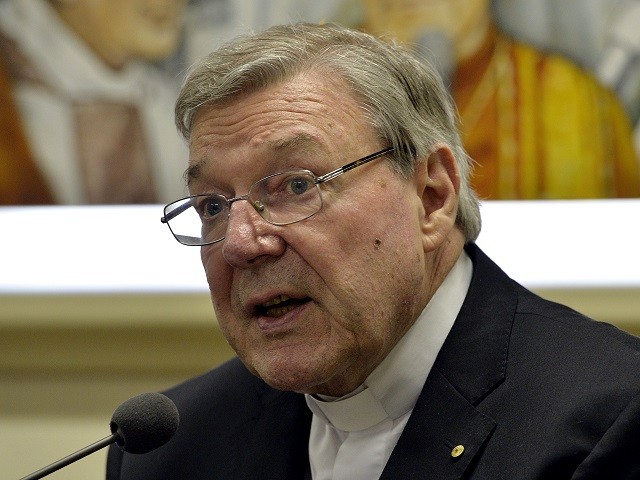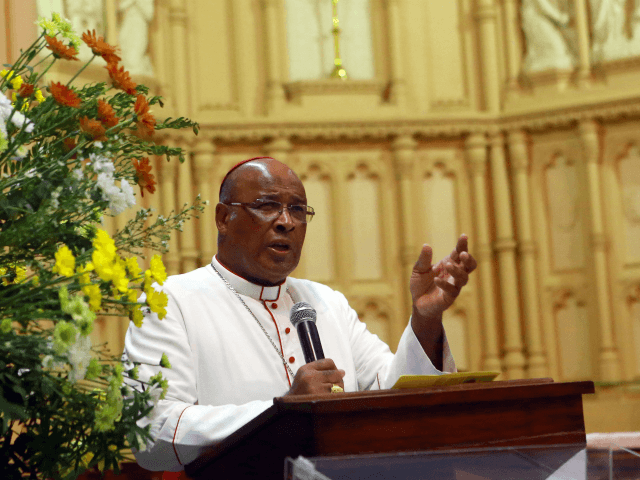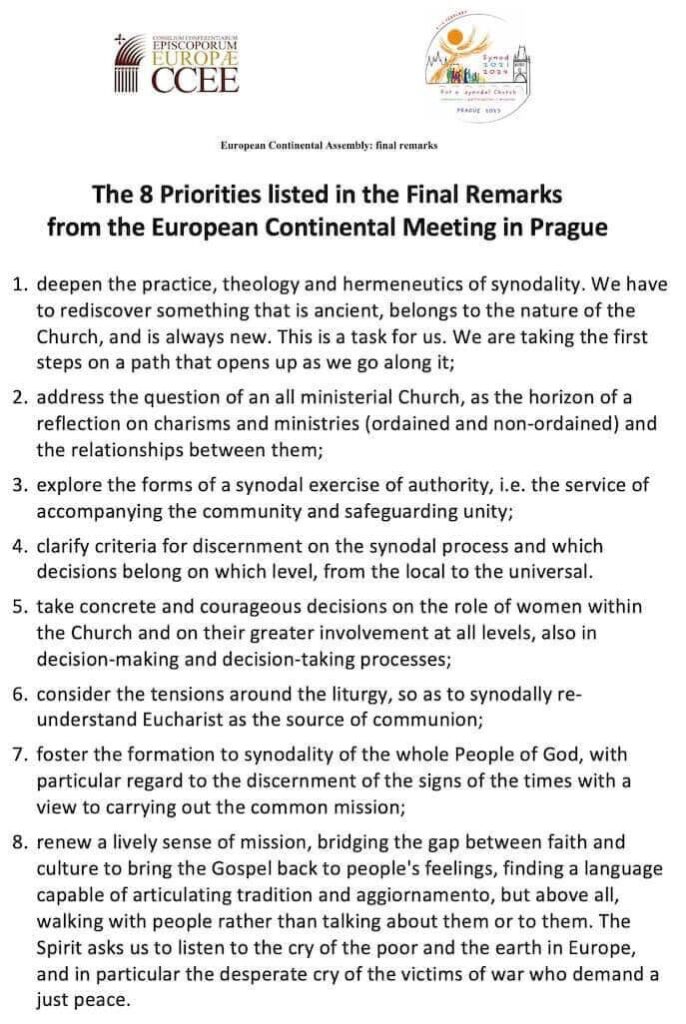ROME — South African Cardinal Wilfrid Napier has blasted the European bishops for focusing more on structures and the exercise of power than on Jesus Christ.
Cardinal Napier was reacting to the publication of eight priorities adopted by the Catholic European Continental Assembly in Prague, none of which made reference to Jesus.
“Strangely, there isn’t a single mention of Jesus, in spite of Pope Francis frequent reference to the Church as Disciples who ‘walk with Jesus!’,” the cardinal noted in a February 16 post on Twitter.
In his post, Napier went on to suggest that the loss of a Christ-centered focus in the Continental Assembly is emblematic of a larger problem facing the Church in the West.
“Isn’t this the basic problem with the Church, especially in the West, its focus is on structures & the exercise of power, not on Jesus?” he proposed.
The eight priorities identified by Europe’s bishops included deepening the practice, theology, and hermeneutics of synodality; addressing the question of an all-ministerial Church; exploring forms of a synodal exercise of authority; and bringing the Gospel “back to people’s feelings.”
There is no mention of salvation, sacraments, or even God, while calling for greater efforts to “listen to the cry of the poor and the earth.”
Cardinal Napier is not the first prominent prelate to sharply criticize the Church’s newfound focus on “synodality,” which seems to risk replacing the Gospel message with psychobabble.
Shortly before his death in January, Australian Cardinal George Pell penned an essay in which he excoriated the Church’s synodal way as “hostile” to the apostolic tradition.
In particular, Cardinal Pell offered a scathing critique of the 45-page working document meant to guide the “Continental stage” of the Church’s ongoing “synod on synodality.”
The Catholic Synod of Bishops has produced “one of the most incoherent documents ever sent out from Rome,” Pell declared, and what was intended to express “God’s dream” of synodality has developed into a “toxic nightmare.”
The synodal document, titled “Enlarge the Space of Your Tent,” focuses primarily on radical inclusion, listening, participation, and co-responsibility with believers and nonbelievers, while ignoring central themes of Christian teaching and practice, Pell noted.

Shortly before his death in January, Australian Cardinal George Pell excoriated the Church’s synodal way as “hostile” to the apostolic tradition. (ANDREAS SOLARO/AFP/Getty)
“The document does not urge even the Catholic participants to make disciples of all nations (Matthew 28:16-20), much less to preach the Saviour in season and out of season (2 Timothy 4:2),” he stated, calling the text a “recent update of the good news.”
In a similar fashion, Philadelphia’s emeritus archbishop Charles Chaput asserted last month the recently adopted synodal process is “imprudent and prone to manipulation.”
“The claim that Vatican II somehow implied the need for synodality as a permanent feature of Church life is simply false,” he noted in an interview. “The council never came close to suggesting that.”
Having been personally active in the 2018 synod in Rome, Chaput said that “the way ‘synodality’ was smuggled onto the agenda was manipulative and offensive. It had nothing at all to do with the synod’s theme of young people and the faith.”
“Synodality risks becoming a kind of Vatican III Lite; a rolling council on a much more controllable, malleable scale. That wouldn’t serve the needs of the Church or her people,” he added.
“There’s no tradition of bishops delegating their personal responsibility for the universal Church to a smaller number of bishops, so any such development would need to be very carefully examined and discussed before any attempt at implementation,” he said. “That’s not the current spirit or reality of what’s happening.”


COMMENTS
Please let us know if you're having issues with commenting.